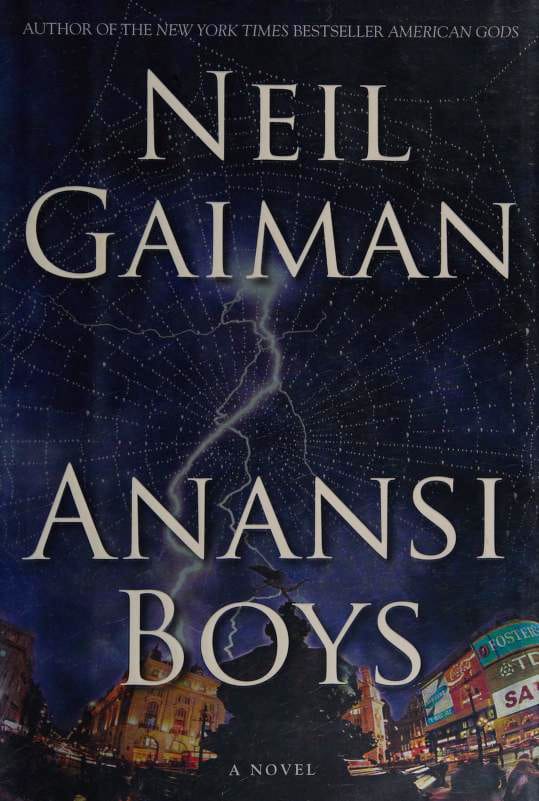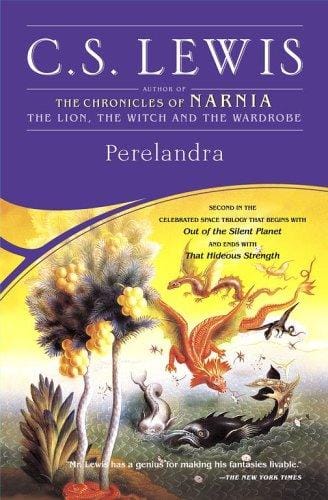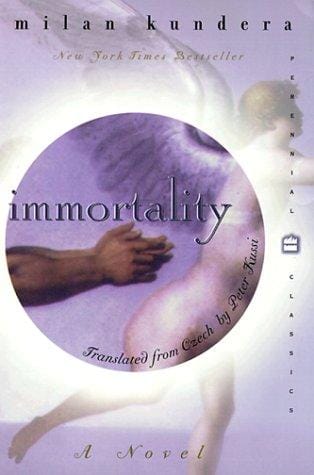Anansi Boys: A Playful Dance of Gods, Stories, and Family
Discover the plot, themes, characters, and cultural richness of Neil Gaiman’s Anansi Boys in this in-depth, spoiler-light guide.

Introduction to Anansi Boys
Neil Gaiman’s novel "Anansi Boys" blends Caribbean folklore, modern fantasy, and sly comedy into a brisk adventure about family, identity, and the power of stories. First published in 2005, the book stands both as a companion to Gaiman’s celebrated "American Gods" and as a wholly self-contained tale that newcomers can relish without prior knowledge. Overflowing with trickster energy, "Anansi Boys" follows two very different brothers who learn that parenthood, destiny, and myth are sometimes one and the same.
Plot Overview: When Stories Come to Life
The novel opens with a death notice: Mr. Nancy, an affable old gentleman living in Florida, has suddenly died while singing karaoke. What his estranged son Charles “Fat Charlie” Nancy doesn’t yet know is that the dearly departed was actually Anansi, West African spider-god of stories and mischief. Summoned to the funeral, Fat Charlie soon discovers he has a charismatic, magically gifted brother named Spider. When Spider crashes into Charlie’s orderly London life—stealing his fiancée, charming his boss, and warping reality at will—Charlie decides the only way to regain control is to enter the mythic realm, challenge the power of stories itself, and confront the legacy left by his father. The ensuing narrative leaps from London offices to Caribbean backstreets, then plunges into otherworldly liminal spaces where ancient animal gods still bargain and boast.
Meet the Characters Who Spin the Web
Fat Charlie Nancy is the book’s unlikely hero, a shy accountant so ordinary that even his nickname originated from one of his father’s embarrassing jokes. Spider, his gleaming alter-ego of a brother, embodies everything Charlie represses: confidence, seduction, and unfiltered magic. Their mother, Daisy Day, reveals hidden depths as she guides Charlie through ancestral secrets. Villains include the scheming manager Grahame Coats, whose greed and cruelty propel much of the earthly danger, and a sinister flock of bird gods led by Tiger, Anansi’s long-time rival. Supporting roles—from the ghostly police detective, Maeve Livingston, to the indomitable Caribbean neighbors Mrs. Higgler and Mrs. Dunwiddy—infuse the story with warmth, humor, and cultural texture.
Major Themes and Motifs
At its heart, "Anansi Boys" explores storytelling as raw, transformative power. Anansi wins his godhood not through force but wit, teaching that narrative can imprison or liberate depending on who wields it. Closely tied to that is the theme of identity: Fat Charlie and Spider must reconcile opposing halves of themselves to become whole. Family occupies another central space—how we inherit burdens, talents, and traumas, and how we choose to redefine them. Gaiman also plays with justice and karma, showing that trickery met with kindness can evolve into heroism, while deception driven by greed invites cosmic retribution. Throughout, humor acts as both shield and sword, underscoring the idea that laughter can puncture even divine egos.
Cultural and Mythological Roots
Anansi stories originated with the Akan people of West Africa and traveled to the Caribbean through the transatlantic slave trade, morphing into folktales that offered coded resistance and sly wisdom. Gaiman honors this heritage by allowing the folklore to breathe in a contemporary setting, rather than freezing it as museum relic. The novel references traditional animal figures—Tiger, Monkey, and Snake—while grounding them in the living, evolving culture of the Caribbean diaspora. By doing so, "Anansi Boys" highlights how myths migrate, adapt, and remain vital for new generations seeking agency through narrative.
Writing Style: Humor, Heart, and a Hint of the Macabre
Gaiman’s prose in "Anansi Boys" feels lighter and more comic than the sprawling myth-epic of "American Gods", yet it retains his trademark lyrical clarity. The narrator often adopts an amused, conspiratorial tone, directly addressing readers, a technique that mimics the oral storytelling traditions at the novel’s core. Sentence rhythms swing between playful and poetic, allowing moments of slapstick to coexist with poignant meditations on grief. Occasional bursts of horror—Graheme Coats’s descent into murderous obsession, or Tiger’s predatory hunger—ground the jokes with real stakes. This tonal elasticity makes the book accessible to both fantasy devotees and general readers.
Adaptations and Lasting Legacy
Interest in translating "Anansi Boys" beyond the page has grown steadily. A BBC Radio dramatization aired in 2017, capturing the novel’s humor through lively performances and Caribbean-inflected soundscapes. More recently, Amazon Prime announced a live-action limited series in development, with Gaiman serving as executive producer to ensure cultural authenticity and narrative fidelity. Even before screen adaptations, the novel influenced numerous authors who likewise fuse folklore with modern settings, cementing its status as a touchstone in contemporary fantasy literature.
Why You Should Read Anansi Boys Today
If you crave fantasy that centers humor rather than brooding darkness, "Anansi Boys" delivers trickster delights in spades. Yet beneath the laughter lies a resonant meditation on what it means to own your story—especially for members of diasporic communities whose narratives were historically suppressed. Readers weary of medieval European tropes will find refreshing new textures in the novel’s Caribbean cadence and West African roots. Moreover, its concise, brisk pacing makes it an excellent entry point for anyone curious about Neil Gaiman’s oeuvre, or about mythic fiction in general.
Conclusion: The Web Continues to Grow
"Anansi Boys" proves that stories, like spiders’ webs, are delicate yet unbreakably persistent, capable of spanning cultures, generations, and even worlds. By remixing ancient folklore with contemporary concerns, Neil Gaiman invites us to laugh at gods, love our flawed families, and remember that every narrative—no matter how small—can sing.



